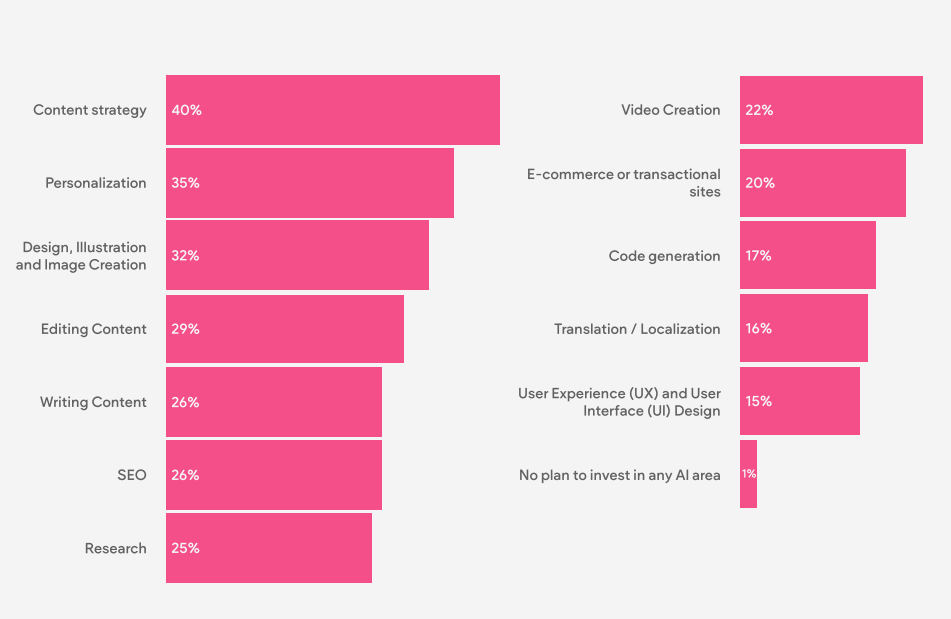Gemini SERP, Hours Now a LRF, Agencies Love AI

The Gemini SERP
This week, Google shelved its splashy in-person Gemini launch event in favor of blog posts and multiple videos showcasing the AI's advanced capabilities. One of more popular videos was, unfortunately, a "faked" demo. Others were more authentic (see, e.g.). The public has access to Gemini through Bard, though not much has obviously changed yet – especially for local. Mixed anecdotal reactions suggest Gemini might have been rushed out the door, as part of Google's effort to change the PR narrative and prove it can retake the lead from OpenAI and Microsoft, which it claims to have done according to benchmark testing. More interesting to us, is the video (below) showing how Gemini might be integrated into the search UI. The video presents a scenario in which a parent is looking for ideas for a child's birthday party. Gemini uses "bespoke" interfaces to help disambiguate and help refine the query rather than simply presenting the traditional SERP with images and links. One can easily imagine this being the future direction for the search UI and a full-blown replacement for Google SGE, which has been less than impressive to date.
Our take:
- Gemini will be used "on the backend" to understand user intent without question. But the UI implications are interesting to contemplate.
- One can imagine different UIs by vertical, which is already sort of happening, or by query intent (informational vs. transactional).
- Google could use this to collapse the funnel. Ads could be more "elegantly" incorporated at "end," potentially creating a better overall UX.
Report: Biz Hours a LRF
SterlingSky reported that business hours are now a local ranking factor, which impacts local visibility in the Google SERP. "As of November 2023, Google appears to be looking at whether a business is currently open as a ranking factor for local pack rankings," SterlingSky owner Joy Hawkins writes. This makes sense and a version of this has probably been going on for some time in mobile; however it has yet to be confirmed by others or Google. If correct, these findings will undoubtedly prompt some businesses to try and represent 24/7 availability for ranking advantage. However, that may be difficult; local guides, third party data (NAP consistency) and Google Duplex are potential enforcement tools. According to earlier research by Google (2014), hours are one of the top three local information types mobile users search for. But there are some unanswered questions. For example, which categories and queries will be affected? Will it be equally applied on the desktop vs. mobile? How much "hours spam" will this prompt? And how will Google respond to fake hours?

Our take:
- While hours do appear, from SterlingSky's evidence, to be a local ranking factor more testing is probably warranted.
- In some categories there may be a difference between "business hours" and "access hours" (e.g., storage). This may create challenges. Google's business hours guidelines.
- Some service businesses and consultants (e.g., realtors) may try to expand hours because they can take calls any time of day.
Agencies Love AI, but FOMO
The AI surveys are now coming fast and furiously. The latest is from Duda, which used a third party firm to survey "200 digital agency leaders worldwide." Most (80%) of respondents are from agencies with <100 people and 50% are US-based. One of the headlines is: 100% agencies surveyed are already using AI in some form. Earlier surveys show lower adoption. Duda's respondents are totally bullish on AI tools to help them save time, boost profitability and scale. However, the majority (84%) express varying levels of concern about keeping up with rapid AI evolution (FOMO) and there are other concerns as well (e.g., security/privacy). The top three tools being used are: 1) ChatGPT, 2) DALL-E and 3) Bard. The top use cases are mostly content-related: updating websites, creating new pages, creating images for sites and optimizing content/sites for SEO. Amazingly, 62% of respondents said they were using AI prompts "to create entire sites." The major success metrics are: cost savings, operational efficiency, client satisfaction and engagement, revenue growth. Agencies expect to save an average of ~$7K in 2024 using AI, with larger ones expecting to save more than $25K. Overall, agencies expect that AI will "transform" their businesses in the coming years.

Our take:
- There are risks to using AI to without enough human oversight. Nextdoor created 300K pages with AI for SEO but may have been hit by HCU.
- Regardless, AI has now become a critical part of digital agency workflows. Best practices will evolve rapidly in the next 12 - 24 months as capabilities improve.
- For more, check out our podcast interview with Whitespark's Darren Shaw and SterlingSky's Joy Hawkins about current local SEO AI use cases.
Recent Analysis
- Near Memo episode 137: Can Gemini fix search?, the impact Google’s rating bias, LSA reviewjacking.
- AI & Your Local SEO Agency: One Year Later, by Greg Sterling.
Short Takes
- Google formally rolls out new Local Pack design.
- Unattractive biz category banners appearing in SGE Local Pack.
- Google SGE testing export feature for Gmail and Google Docs.
- Google "help me write" feature coming to Chrome for desktop.
- Some digital marketing spend shifting to direct mail.
- Google lets PMAX advertisers opt out of Search Partner Network.
- Yahoo Blueprint: an AI media buying and performance tool for its DSP.
- EU reaches agreement on AI regs, allowing for gov't surveillance.
- Meta launches an AI image generator to compete with DALL-E, etc.
- Read.ai expands summarization capabilities beyond single meetings.
- Grim future when AI delivers content at zero-marginal cost.
Listen to our latest podcast.

How can we make this better? Email us with suggestions and recommendations.

